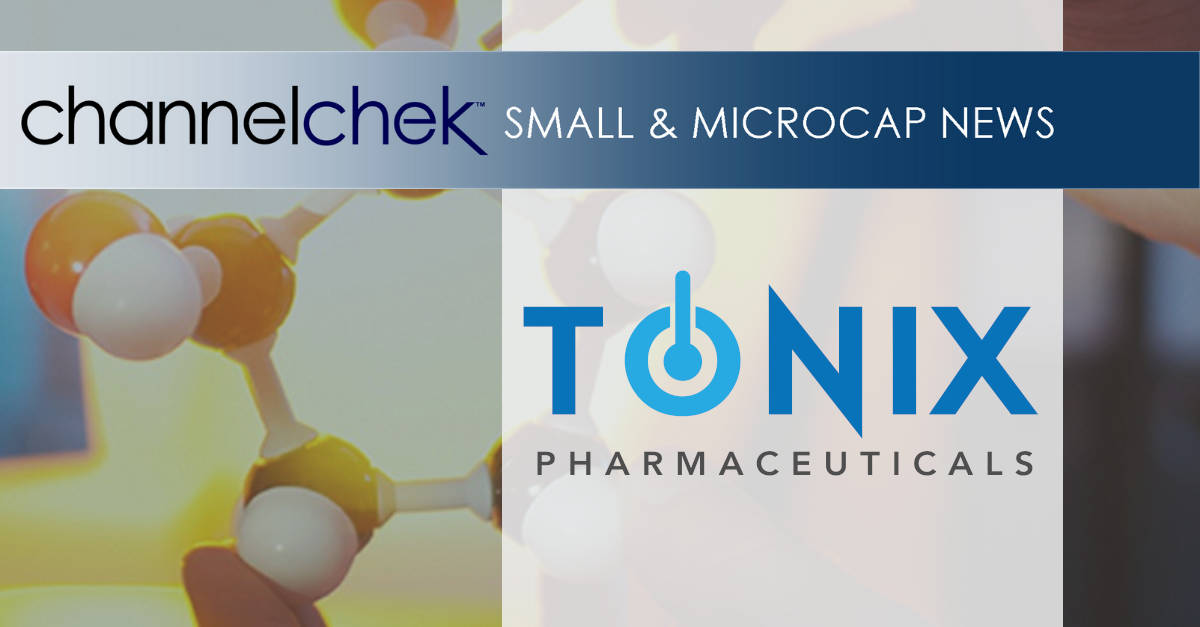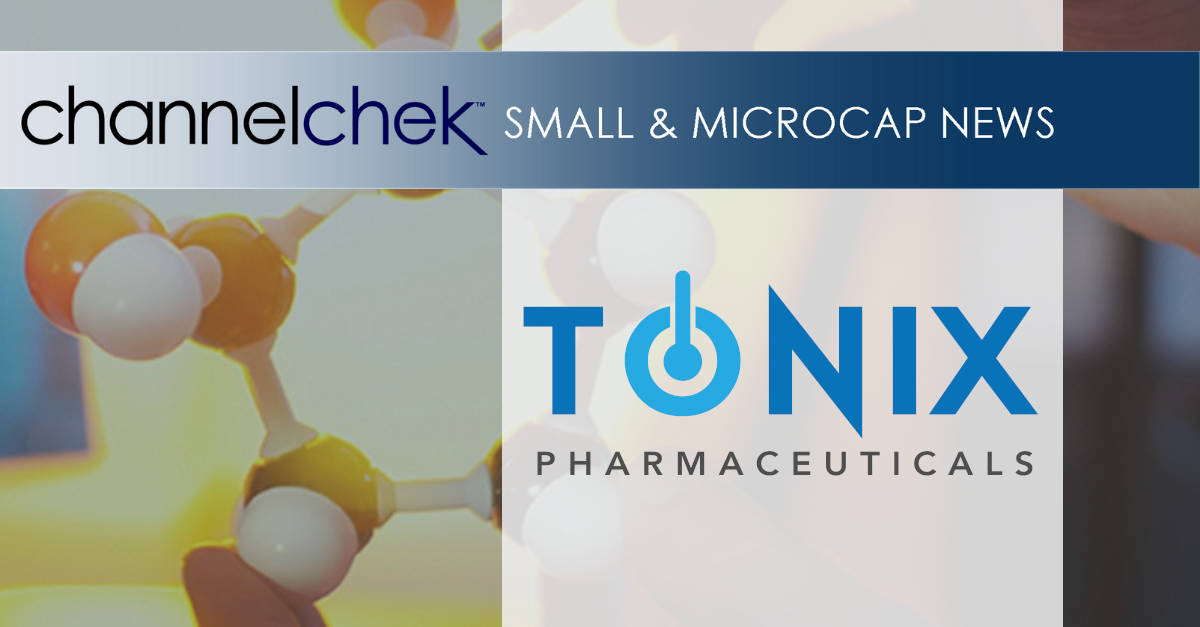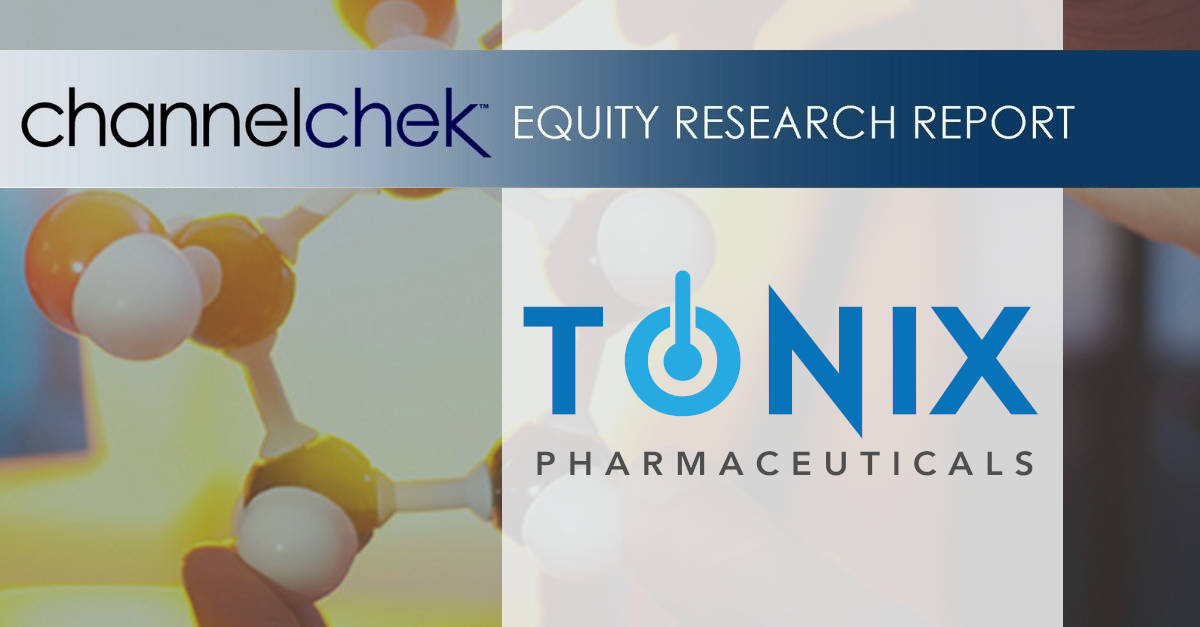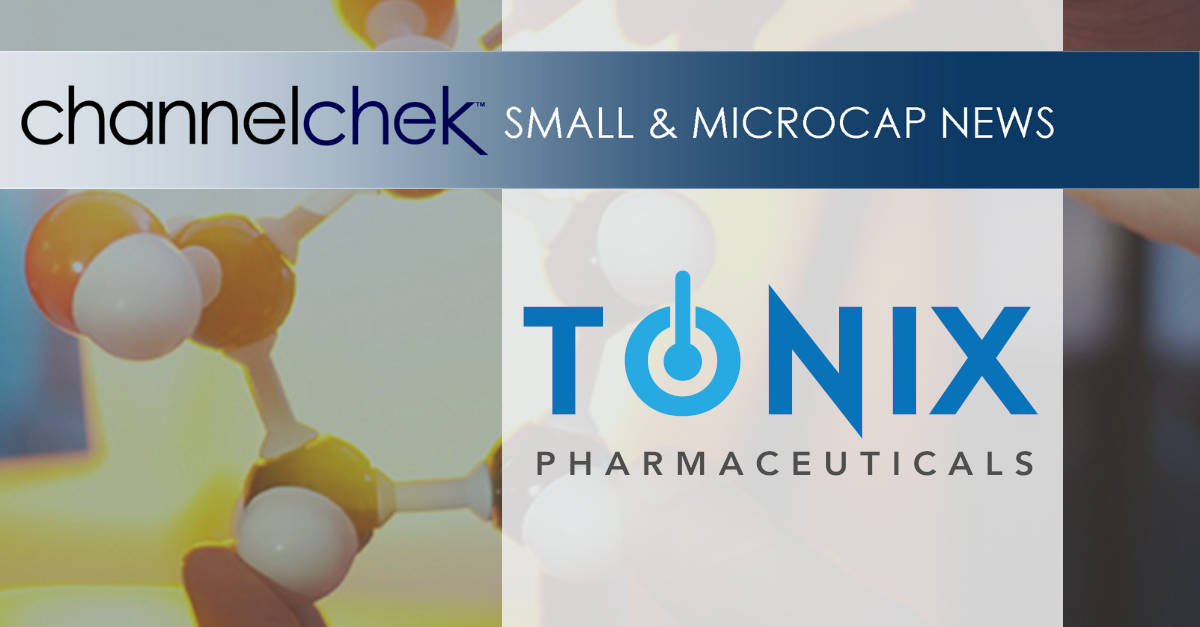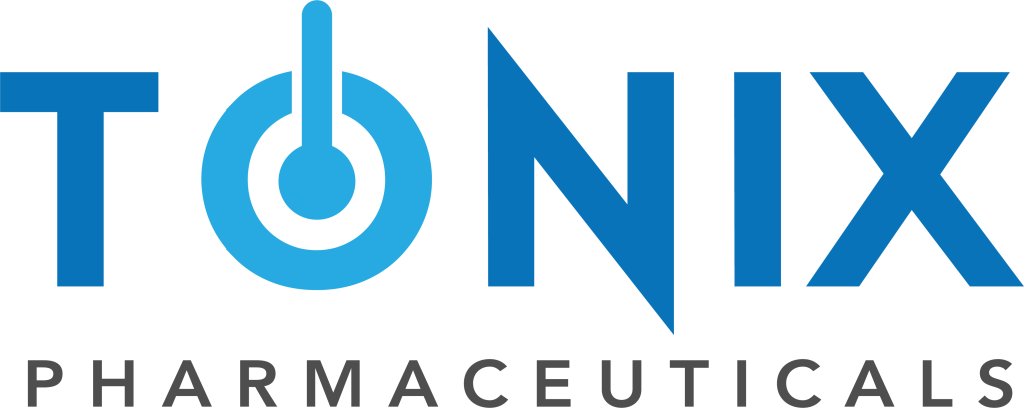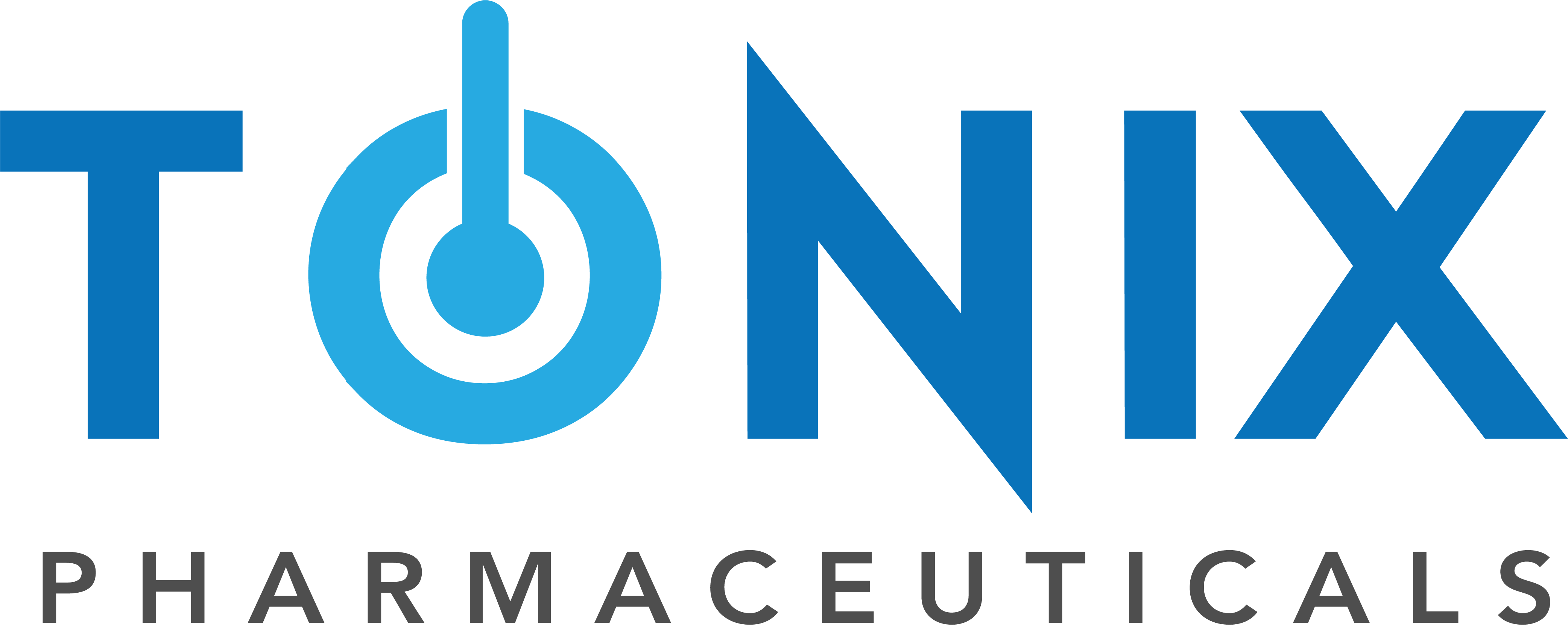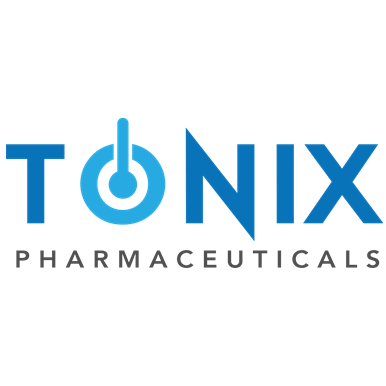
Research News and Market Data on TNXP
January 30, 2026 7:00am EST Download as PDF
TONMYA demonstrated significant reduction in fibromyalgia pain compared with placebo in the Phase 3 RESILIENT study
Unique sublingual formulation designed for bedtime dosing bypasses first-pass metabolism, optimizing parent-drug exposure during sleep and decreasing levels of the persistent active metabolite
Treatment was well tolerated with minimal effects on weight or blood pressure
CHATHAM, N.J., Jan. 30, 2026 (GLOBE NEWSWIRE) — Tonix Pharmaceuticals Holding Corp. (Nasdaq: TNXP) (“Tonix” or the “Company”), a fully integrated, commercial biotechnology company, presented data on TONMYA™, which was investigated as TNX-102 SL, at the 2026 Non-Opioid Pain Therapeutics Summit, on January 29, 2026, in Boston, Massachusetts. A copy of the Company’s presentation, titled “TNX-102 SL (Sublingual Cyclobenzaprine HCl): a Centrally Acting Non-Opioid Analgesic for the Treatment of Fibromyalgia,” is available under the Scientific Presentations tab of the Tonix website at www.tonixpharma.com.
“Fibromyalgia is a chronic pain disorder affecting more than 10 million adults in the U.S., with existing treatments often limited by tolerability and side effects,” said Seth Lederman, M.D., Chief Executive Officer of Tonix Pharmaceuticals. “The data presented at the Non-Opioid Pain Therapeutics Summit by our Chief Medical Officer, Gregory Sullivan, M.D. highlight TONMYA’S role as a centrally-acting, differentiated non-opioid treatment. TONMYA’S unique sublingual formulation is designed for bedtime administration and to bypass first-pass metabolism, resulting in a pharmacokinetic profile that favors parent-drug exposure during sleep while limiting daytime exposure to the active metabolite. Since fibromyalgia patients are commonly prescribed opioids off-label, there is a clear need for effective non-opioid alternatives.”
The data presented at the Summit come from RESILIENT, a 14-week randomized, double-blind, placebo-controlled Phase 3 trial at 34 U.S. sites, with 456 intent-to-treat participants who met the 2016 American College of Rheumatology criteria for fibromyalgia. Participants received TONMYA or placebo administered sublingually at bedtime. Treatment with TONMYA resulted in a statistically significant reduction in weekly average pain scores at Week 14 (p<0.0001) versus placebo, with an effect size of 0.38. The study also demonstrated significant improvements in key secondary endpoints, including sleep disturbance (p<0.001), fatigue (p<0.001), and the Symptoms (p<0.001) and Function (p=0.001) domains of the Fibromyalgia Impact Questionnaire-Revised (p<0.001 for both). TONMYA was well tolerated, with minimal impact on weight and blood pressure, and a rate of adverse event-related discontinuations of 6.1% on TONMYA vs. 3.5% on placebo. The most common adverse events were mild and self-limited oral cavity reactions that rarely led to study withdrawal.
“TONMYA’S sublingual formulation largely bypasses first-pass hepatic metabolism, which reduces formation of norcyclobenzaprine, the persistent active metabolite that we believe otherwise interferes with the duration of the treatment effect,” said Dr. Sullivan. “This results in a distinct pharmacokinetic profile compared to oral cyclobenzaprine, with greater relative bioavailability of the parent drug during sleep and reduced active metabolite exposure during daytime. Bedtime sublingual administration is also designed to target the non-restorative sleep that is central to fibromyalgia pathophysiology, translating to broad-spectrum activity across the core symptoms of fibromyalgia, including pain, sleep disturbance, and fatigue, with a favorable tolerability profile that may reduce the need for polypharmacy.”
TONMYA was approved on August 15, 2025, by the FDA for the treatment of fibromyalgia in adults. It is the first new prescription medicine approved for fibromyalgia in more than 15 years.
Tonix Pharmaceuticals Holding Corp.*
Tonix is a fully-integrated biotechnology company with marketed products and a pipeline of development candidates. Tonix markets FDA-approved TONMYA™, a first-in-class, non-opioid analgesic medicine for the treatment of fibromyalgia, a chronic pain condition that affects millions of adults. TONMYA is the first new prescription medicine approved by the FDA for fibromyalgia in more than 15 years. TONMYA was investigated as TNX-102 SL. Tonix also markets two treatments for acute migraine in adults: Zembrace® SymTouch® (sumatriptan injection) and Tosymra® (sumatriptan nasal spray). Tonix’s development portfolio* is focused on central nervous system (CNS) disorders, immunology, immuno-oncology, rare disease and infectious disease. TNX-102 SL is being developed to treat acute stress reaction and acute stress disorder under an Investigator-Initiated IND at the University of North Carolina in the OASIS study funded by the U.S. Department of Defense (DoD). TNX-102 SL is also in development for major depressive disorder. Tonix’s immunology development portfolio consists of biologics to address organ transplant rejection, autoimmunity and cancer, including TNX-1500, which is a Phase 2- ready Fc-modified humanized monoclonal antibody targeting CD40-ligand (CD40L or CD154) being developed for the prevention of allograft rejection and for the treatment of autoimmune diseases. Tonix’s rare disease portfolio includes TNX-2900, intranasal oxytocin potentiated with magnesium, in development for Prader-Willi syndrome and expected to start a potential pivotal Phase 2 study in 2026. Tonix’s infectious disease portfolio includes TNX-801, a vaccine in development for mpox and smallpox, as well as TNX-4800, a Phase 2- ready long-acting humanized monoclonal antibody for the seasonal prevention of Lyme disease. Finally, TNX-4200 for which Tonix has a contract with the U.S. DoD’s Defense Threat Reduction Agency (DTRA) for up to $34 million over five years, is a small molecule broad-spectrum antiviral agent targeting CD45 for the prevention or treatment of high lethality infections to improve the medical readiness of military personnel in biological threat environments. Tonix owns and operates a state-of-the art infectious disease research facility in Frederick, Md.
* Tonix’s product development candidates are investigational new drugs or biologics; their efficacy and safety have not been established and have not been approved for any indication.
Forward Looking Statements
Certain statements in this press release are forward-looking within the meaning of the Private Securities Litigation Reform Act of 1995 including those relating to the completion of the offering, the satisfaction of customary closing conditions, the intended use of proceeds from the offering and other statements that are predictive in nature. These statements may be identified by the use of forward-looking words such as “anticipate,” “believe,” “forecast,” “estimate,” “expect,” and “intend,” among others. These forward-looking statements are based on Tonix’s current expectations and actual results could differ materially as a result of a number of factors, including the ability of the Company to satisfy the conditions to the closing of the offering and the timing thereof, as well as those described in the Company’s Annual Report on Form 10-K for the year ended December 31, 2024, as filed with the SEC on March 18, 2025, and periodic reports filed with the SEC on or after the date thereof. Tonix does not undertake an obligation to update or revise any forward-looking statement. All of Tonix’s forward-looking statements are expressly qualified by all such risk factors and other cautionary statements. The information set forth herein speaks only as of the date thereof.
Investor Contacts
Jessica Morris
Tonix Pharmaceuticals
investor.relations@tonixpharma.com
(862) 799-8599
Brian Korb
astr partners
(917) 653-5122
brian.korb@astrpartners.com
Media Contacts
Ray Jordan
Putnam Insights
ray@putnaminsights.com
INDICATION
TONMYA is indicated for the treatment of fibromyalgia in adults.
CONTRAINDICATIONS
TONMYA is contraindicated:
In patients with hypersensitivity to cyclobenzaprine or any inactive ingredient in TONMYA. Hypersensitivity reactions may manifest as an anaphylactic reaction, urticaria, facial and/or tongue swelling, or pruritus. Discontinue TONMYA if a hypersensitivity reaction is suspected. With concomitant use of monoamine oxidase (MAO) inhibitors or within 14 days after discontinuation of an MAO inhibitor. Hyperpyretic crisis seizures and deaths have occurred in patients who received cyclobenzaprine (or structurally similar tricyclic antidepressants) concomitantly with MAO inhibitors drugs.
During the acute recovery phase of myocardial infarction, and in patients with arrhythmias, heart block or conduction disturbances, or congestive heart failure. In patients with hyperthyroidism.
WARNINGS AND PRECAUTIONS
Embryofetal toxicity: Based on animal data, TONMYA may cause neural tube defects when used two weeks prior to conception and during the first trimester of pregnancy. Advise females of reproductive potential of the potential risk and to use effective contraception during treatment and for two weeks after the final dose. Perform a pregnancy test prior to initiation of treatment with TONMYA to exclude use of TONMYA during the first trimester of pregnancy.
Serotonin syndrome: Concomitant use of TONMYA with selective serotonin reuptake inhibitors (SSRIs), serotonin norepinephrine reuptake inhibitors (SNRIs), tricyclic antidepressants, tramadol, bupropion, meperidine, verapamil, or MAO inhibitors increases the risk of serotonin syndrome, a potentially life-threatening condition. Serotonin syndrome symptoms may include mental status changes, autonomic instability, neuromuscular abnormalities, and/or gastrointestinal symptoms. Treatment with TONMYA and any concomitant serotonergic agent should be discontinued immediately if serotonin syndrome symptoms occur and supportive symptomatic treatment should be initiated. If concomitant treatment with TONMYA and other serotonergic drugs is clinically warranted, careful observation is advised, particularly during treatment initiation or dosage increases.
Tricyclic antidepressant-like adverse reactions: Cyclobenzaprine is structurally related to TCAs. TCAs have been reported to produce arrhythmias, sinus tachycardia, prolongation of the conduction time leading to myocardial infarction and stroke. If clinically significant central nervous system (CNS) symptoms develop, consider discontinuation of TONMYA. Caution should be used when TCAs are given to patients with a history of seizure disorder, because TCAs may lower the seizure threshold. Patients with a history of seizures should be monitored during TCA use to identify recurrence of seizures or an increase in the frequency of seizures.
Atropine-like effects: Use with caution in patients with a history of urinary retention, angle-closure glaucoma, increased intraocular pressure, and in patients taking anticholinergic drugs.
CNS depression and risk of operating a motor vehicle or hazardous machinery: TONMYA monotherapy may cause CNS depression. Concomitant use of TONMYA with alcohol, barbiturates, or other CNS depressants may increase the risk of CNS depression. Advise patients not to operate a motor vehicle or dangerous machinery until they are reasonably certain that TONMYA therapy will not adversely affect their ability to engage in such activities. Oral mucosal adverse reactions: In clinical studies with TONMYA, oral mucosal adverse reactions occurred more frequently in patients treated with TONMYA compared to placebo. Advise patients to moisten the mouth with sips of water before administration of TONMYA to reduce the risk of oral sensory changes (hypoesthesia). Consider discontinuation of TONMYA if severe reactions occur.
ADVERSE REACTIONS
The most common adverse reactions (incidence ≥2% and at a higher incidence in TONMYA-treated patients compared to placebo-treated patients) were oral hypoesthesia, oral discomfort, abnormal product taste, somnolence, oral paresthesia, oral pain, fatigue, dry mouth, and aphthous ulcer.
DRUG INTERACTIONS
MAO inhibitors: Life-threatening interactions may occur.
Other serotonergic drugs: Serotonin syndrome has been reported.
CNS depressants: CNS depressant effects of alcohol, barbiturates, and other CNS depressants may be enhanced.
Tramadol: Seizure risk may be enhanced.
Guanethidine or other similar acting drugs: The antihypertensive action of these drugs may be blocked.
USE IN SPECIFIC POPULATIONS
Pregnancy: Based on animal data, TONMYA may cause fetal harm when administered to a pregnant woman. The limited amount of available observational data on oral cyclobenzaprine use in pregnancy is of insufficient quality to inform a TONMYA-associated risk of major birth defects, miscarriage, or adverse maternal or fetal outcomes. Advise pregnant women about the potential risk to the fetus with maternal exposure to TONMYA and to avoid use of TONMYA two weeks prior to conception and through the first trimester of pregnancy. Report pregnancies to the Tonix Medicines, Inc., adverse-event reporting line at 1-888-869-7633 (1-888-TNXPMED).
Lactation: A small number of published cases report the transfer of cyclobenzaprine into human milk in low amounts, but these data cannot be confirmed. There are no data on the effects of cyclobenzaprine on a breastfed infant, or the effects on milk production. The developmental and health benefits of breastfeeding should be considered along with the mother’s clinical need for TONMYA and any potential adverse effects on the breastfed child from TONMYA or from the underlying maternal condition.
Pediatric use: The safety and effectiveness of TONMYA have not been established.
Geriatric patients: Of the total number of TONMYA-treated patients in the clinical trials in adult patients with fibromyalgia, none were 65 years of age and older. Clinical trials of TONMYA did not include sufficient numbers of patients 65 years of age and older to determine whether they respond differently from younger adult patients.
Hepatic impairment: The recommended dosage of TONMYA in patients with mild hepatic impairment (HI) (Child Pugh A) is 2.8 mg once daily at bedtime, lower than the recommended dosage in patients with normal hepatic function. The use of TONMYA is not recommended in patients with moderate HI (Child Pugh B) or severe HI (Child Pugh C). Cyclobenzaprine exposure (AUC) was increased in patients with mild HI and moderate HI compared to subjects with normal hepatic function, which may increase the risk of TONMYA-associated adverse reactions.
Please see additional safety information in the full Prescribing Information.
To report suspected adverse reactions, contact Tonix Medicines, Inc. at 1-888-869-7633, or the FDA at 1-800-FDA-1088 or www.fda.gov/medwatch.

Source: Tonix Pharmaceuticals Holding Corp.
Released January 30, 2026
